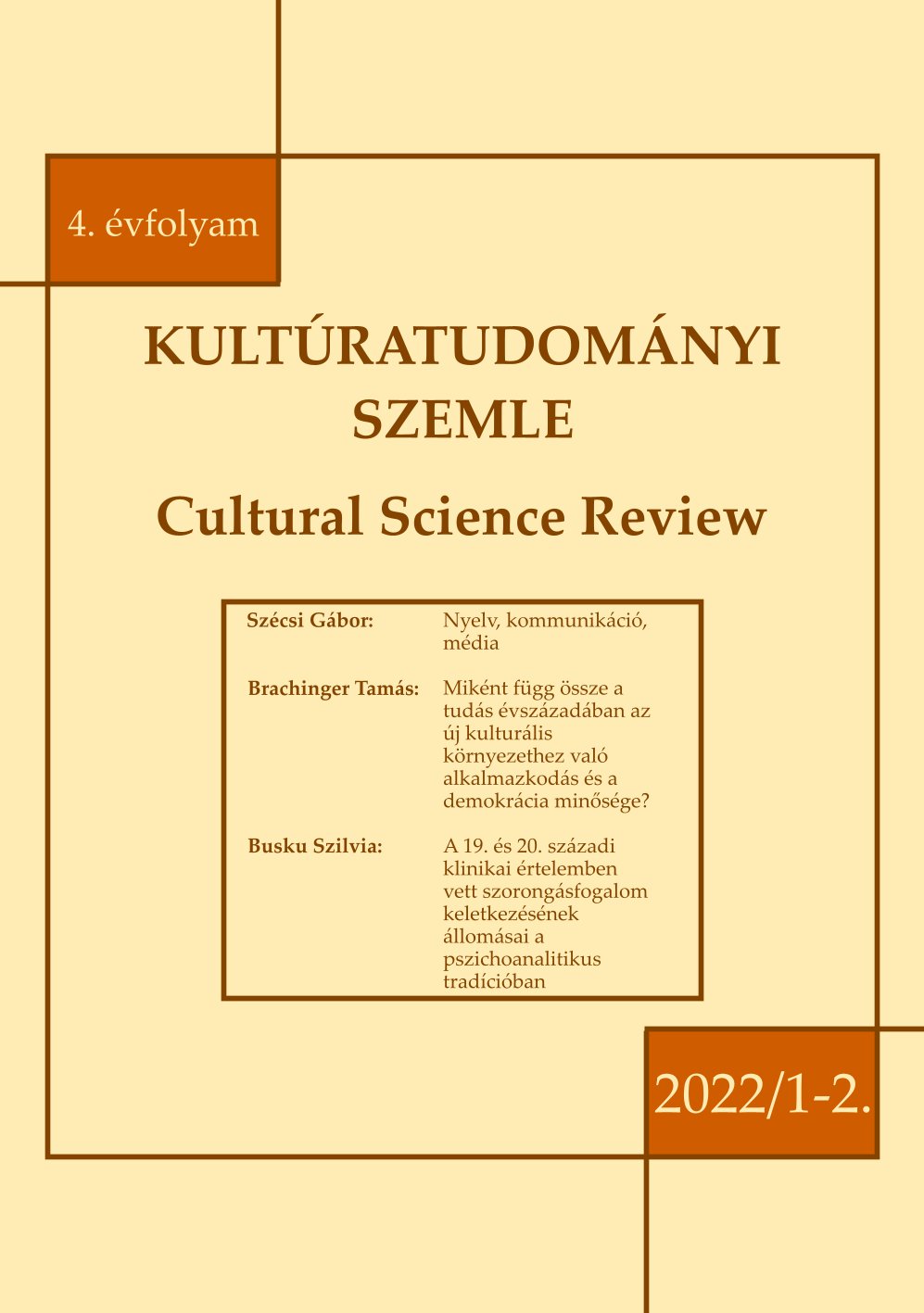A 19. és 20. századi klinikai értelemben vett szorongásfogalom keletkezésének állomásai a pszichoanalitikus tradícióban
DOI:
https://doi.org/10.15170/KSZ.2022.04.01-02.03Absztrakt
The stages of formation of the clinical concept of anxiety in the 19th and 20th century in the psychoanalytic tradition
Szilvia Busku
The psychoanalytic school has not described a homogeneous theory about anxiety. There is no undivided principle about the development of anxiety neurosis but a consecutive creation of new models similarly to the Freudian concept of anxiety described in this study, which has also been alternated several times. Thus, the source of the clinical concept of anxiety can be examined from multiple points of view. Freud and Adler assumed the continuous activity of the same instinct, where sometimes sexuality at other times assertiveness dominates. Unlike Jung, who believes that human existence should not be regarded as a rigid system but a moving and continuous
action affected by different instincts. This study describes the Freudian concepts of anxiety and the Jungian psychology with a brief view on the Kantian and Heideggerian concept of anxiety related conscience.

